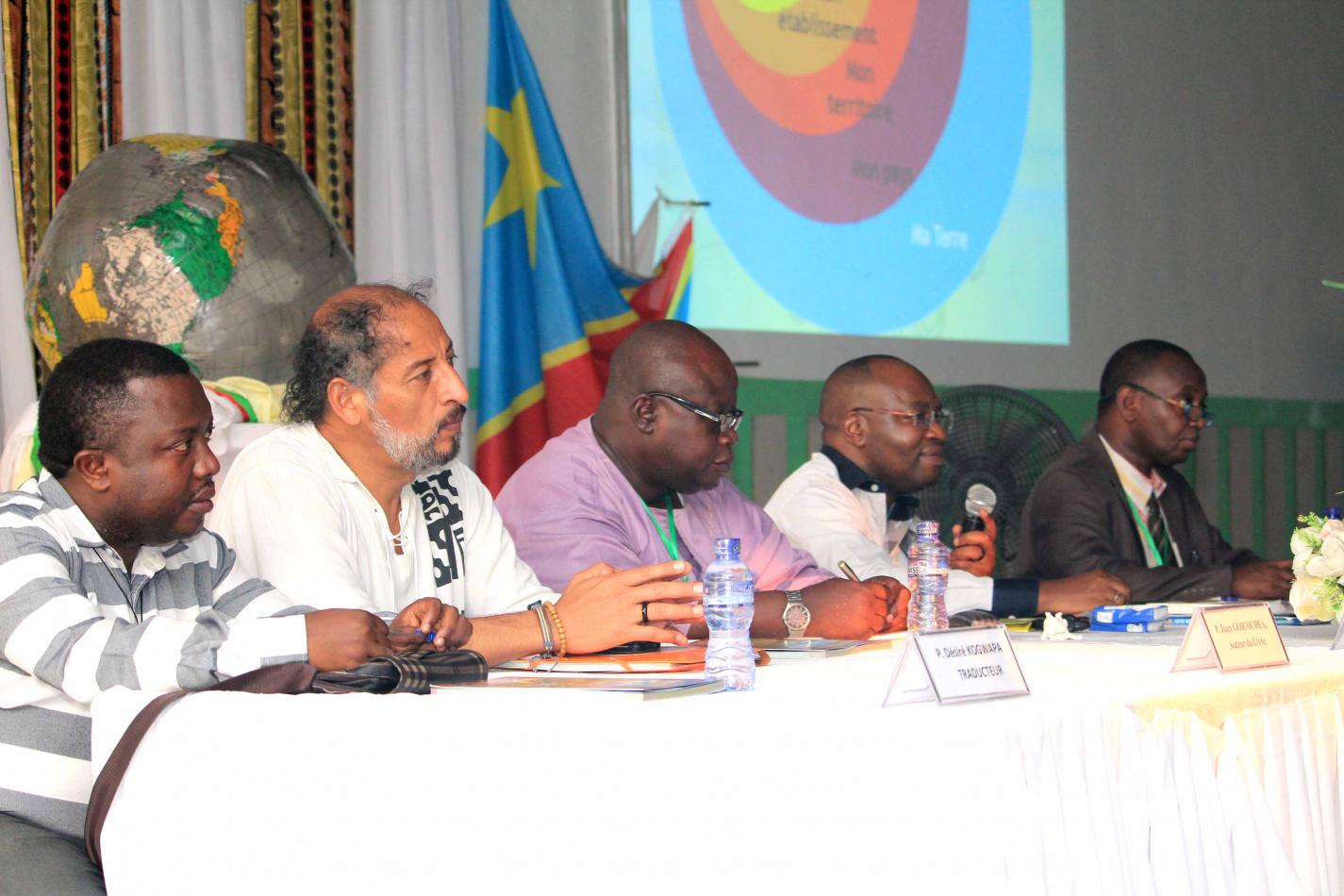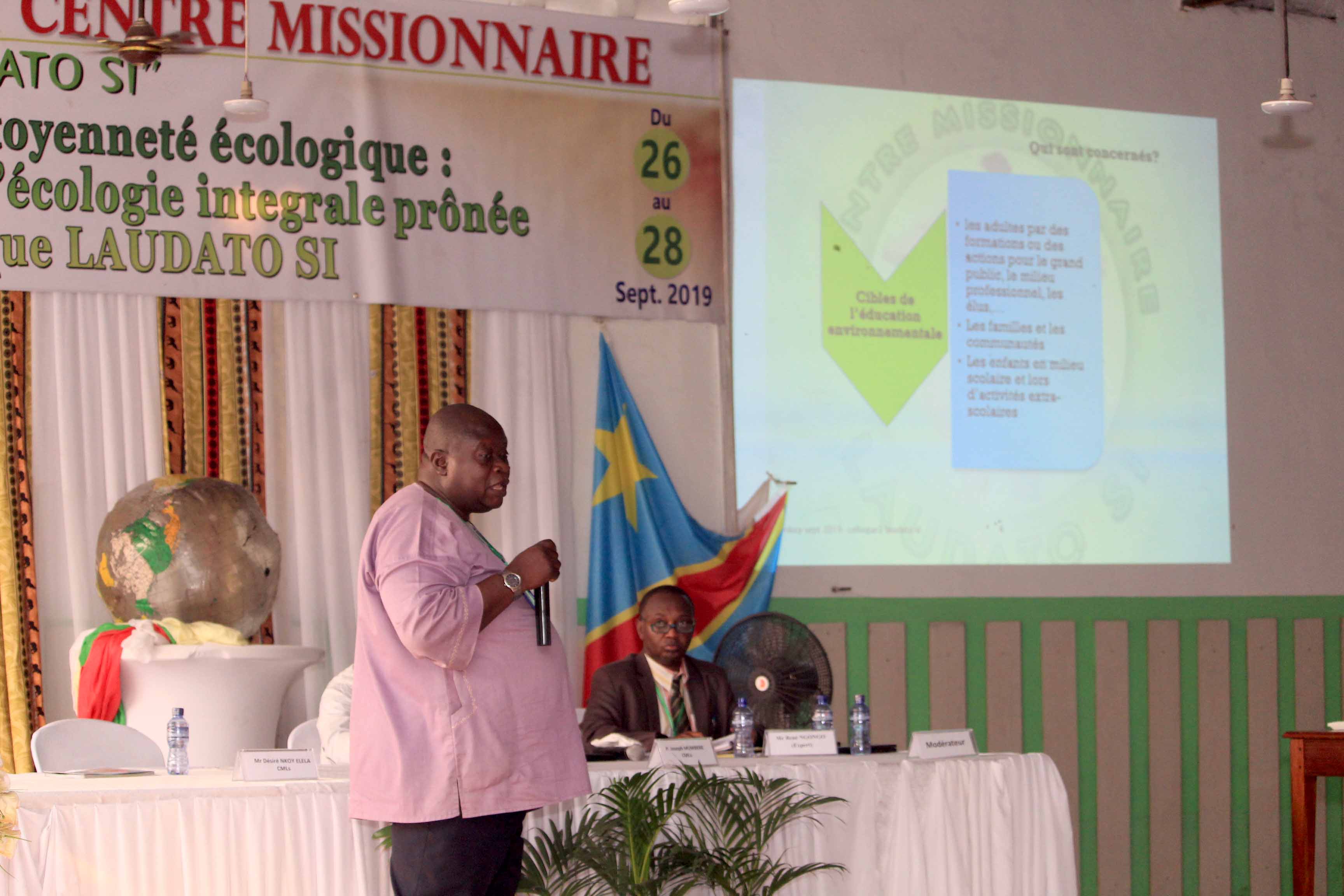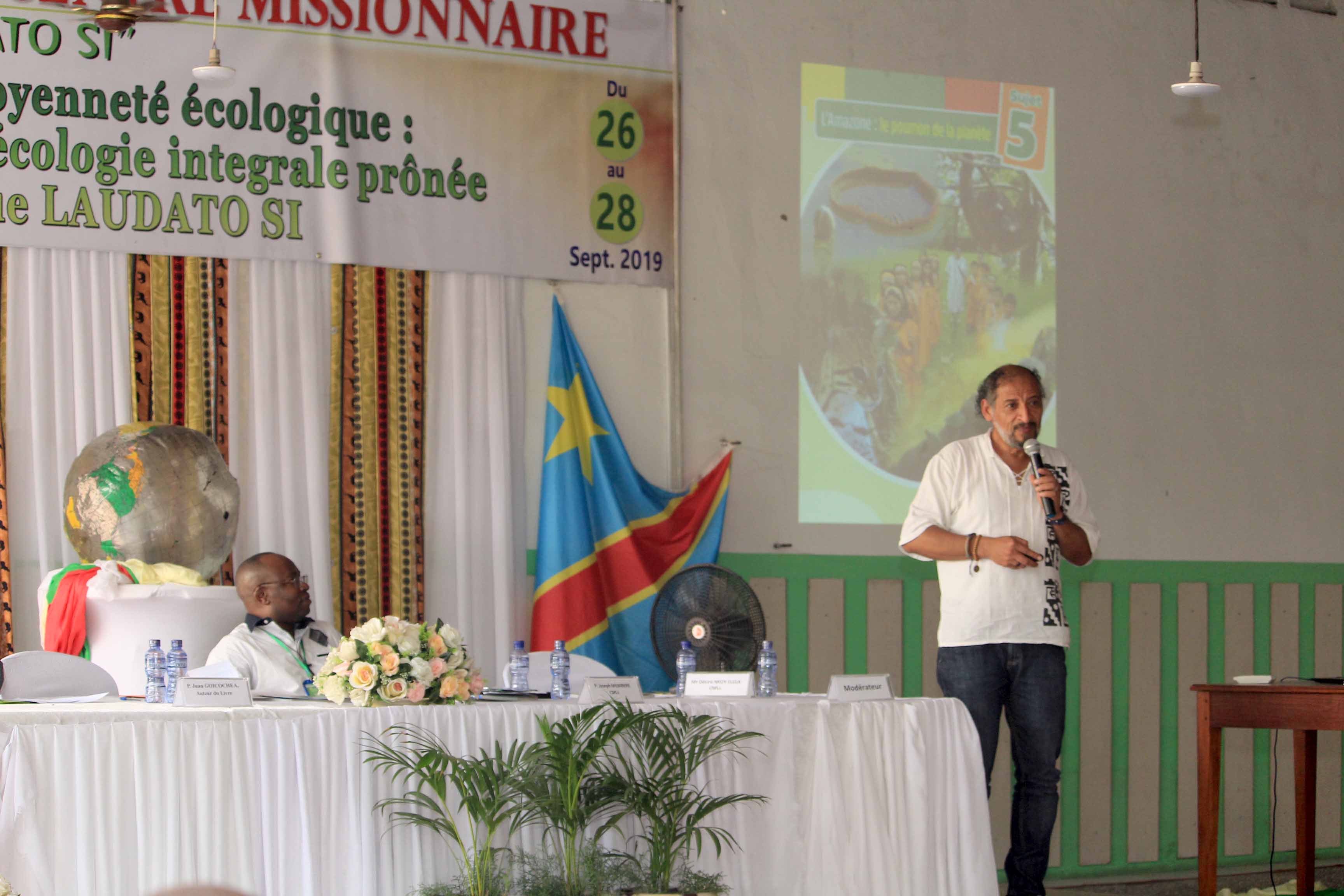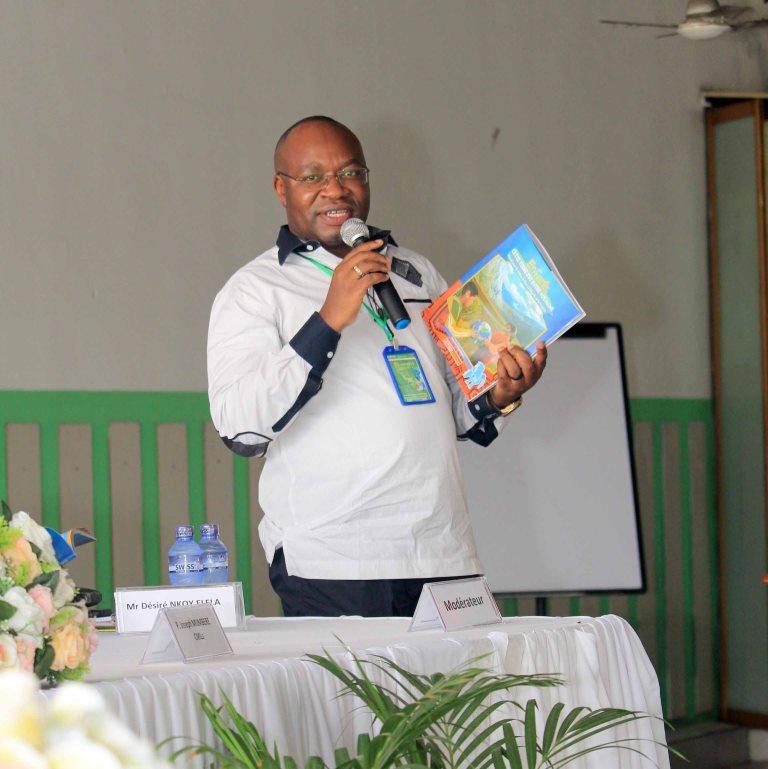Daniel Comboni
Comboni Missionaries
Institutional area
Other links
Newsletter
Monday, November 11, 2019
A significant step in the promotion of ecological pastoral care and citizenship within the grassroots communities in the Democratic Republic of Congo (DRC).
Under the High Patronage of His Eminence Bishop Fridolin Cardinal AMBONGO, Metropolitan Archbishop of Kinshasa, the Laudato si’ Missionary Center organized, following its launching symposium held under the theme "Together for the safeguarding of our Common House" in August 2018, its 2nd Symposium from 26th to 28th September 2019 under the theme: "Pastoral care and ecological citizen: the challenge of education in integral ecology advocated by the Encyclical Laudato si’.
The presence of several state and non-state actors, consecrated and lay people, missionaries and Christians from St. John Paul II Parish has given this activity a special character in the search for a better synergy between all the stakeholders concerned with safeguarding our common home.
One year after the start of the Centre's activities, it was important to reflect on the work done and to start consolidating actions from a new perspective.
It was also a question of consolidating the Centre's vision as a resource structure for animation, training course, research and implementation of micro-projects with a view to the emergence in the DRC of an ecological pastoral care in our Catholic parishes and an ecological citizen within all segments of the population.
In this context, the work of the Symposium pursued the following specific objectives:
- To review the activities carried out by the Centre through the lessons learned and challenges encountered.
- To present the vision of the CMLS for the emergence of an ecological parish pastoral care based on the pilot experience of the Parish of St. John Paul II in the Archdiocese of Kinshasa.
- Share the strategies and actions of the Centre for the Emergence of Ecological Citizen: within the education system in the DRC through educational and university institutions.
- Share and popularize the Integral Ecology Education Manual entitled "Children, this land is in your hands".
- Develop and consolidate synergy with stakeholders involved in environmental protection and ecological citizen (civil society and public institutions).
The work focused on five thematic areas:
- Axis 1- Review of the activities carried out by the Centre since its launch: Lessons learned and challenges encountered.
- Axis 2- Vision of the CMLS for the emergence of parish ecological pastoral care: reflexive feedback on the pilot experience of St. John Paul II Parish in the Archdiocese of Kinshasa.
- Axis 3- Strategies and actions of the Centre for the emergence of ecological citizen within the education system in the DRC.
- Axis 4- Presentation of the Manual of Education for Integral Ecology entitled "Children, this land is in your hands".
- Axis 5- Development and consolidation of partnership with stakeholders involved in environmental protection and ecological citizen (civil society and public institutions).
Main points of attention raised by the exchanges:
The safeguarding of the common house is a shared societal responsibility and it is thanks to the effort of all that we can face all global inequalities in order to build a more just society in solidarity with future generations.
The activities carried out by the CMLS have made it possible to experience with an approach to ecological pastoral care and its consolidation requires a stronger involvement of pastoral agents in synergy with the Diocesan Pastoral Centre Lindonge. Moreover, the strategy "in the school of small actions" must make it possible to take concrete actions to safeguard the common house, starting from the particular situation of the Commune of Limete where CM LS is located.
The future of the planet and of humanity depends on the systems of environmental education and sustainable development to be put in place. The Encyclical Laudato si’ offers a harvest of content for training and education systems
Educating for the environment and sustainable development must be part of public education and training policies in a context of mobilization of all social actors.
The exploration of new paradigms such as "integral ecology" and "common house" advocated by Laudato si’ makes it possible to ensure a relevant networking of the actors involved in this approach. Hence consultation and partnership are an essential lever for a more livable common home.
Recommendations and perspectives
In the light of the presentations and discussions, the participants formulated possible solutions for the implementation of the emergence of pastoral care and ecological citizen in the DRC. These include, in particular:
- To the Government
ɷ Develop and introduce environmental and sustainable development education programmes into training education programmes;
ɷ Provide training for trainers on the issue of ecological citizen;
ɷ Strengthen environmental education and public awareness.
- To the Missionary Center Laudato si’
ɷ Inventory initiatives undertaken by other local organizations or individuals for a good synergy;
ɷ Organize Tree Day celebration every December 5th of the year with the participation of local authorities;
ɷ Multiply the training sessions for facilitators on environmental education and sustainable development;
ɷ Monitor and support the integration of environmental education into national curricula;
ɷ Involve all stakeholders in the implementation of its 2020-2023 action plan;
ɷ Mobilize the necessary resources to facilitate or support grassroots micro-projects.
- To the religious denominations and in a particular way to the parishes of the Archdiocese of Kinshasa: to integrate the actions of the CMLS into their pastoral plans 2020-2023 with the involvement of the CEVBs, Commissions and Groups with their own charism (case of the Parish of Saint John Paul II.
- To the Civil Society organisations: to organise themselves into networks for an inter-actor synergy and an appropriation of the challenges of environmental education with a view to the emergence of ecological citizen.
- To the participants:
ɷ Be a spokesperson (in the family, at work...) by ensuring a wide distribution of the messages of the Symposium;
ɷ Take ownership of the achievements of this 2nd conference by developing eco-citizen behaviour.
Steering Committee
Patronage: Most Reverend Fridolin AMBONGO, Metropolitan Archbishop of Kinshasa.
Coordination of the Symposium:
- Reverend Father Joseph MUMBERE, President of the Centre's Orientation Council;
- Mr Désiré NKOY ELELA, Vice-President of the Centre's Orientation Council;
- Reverend Father Fernando ZOLLI, member of the Orientation Council and in charge of the Centre's cooperation and partnership.
- Reverend Father ETUMBA, member of the Orientation Council and Parish-Priest of the Saint John Paul II parish.
- Mrs Odile NKOY MPUTU BOOTO, Executive Director of the Centre
Support Team
- Reverend Boniface GBAMA, Deputy Director of the Centre.
- Brother André MBALA, Treasurer of the Centre;
- Mr Ignace KUTUKA, Executive Secretary of the Centre;
- Miss Caroline NKOY IHOMI, Thematic Assistant of the Centre.
- Mr Narcisse LADIABATA, Rapporteur/Parish of Saint John Paul II
- Mr Mathieu MABUDI, Full Member







